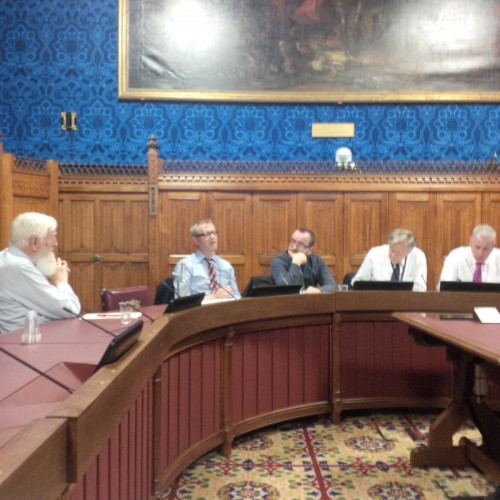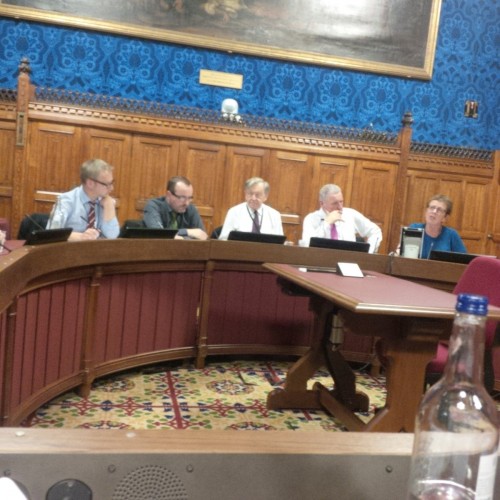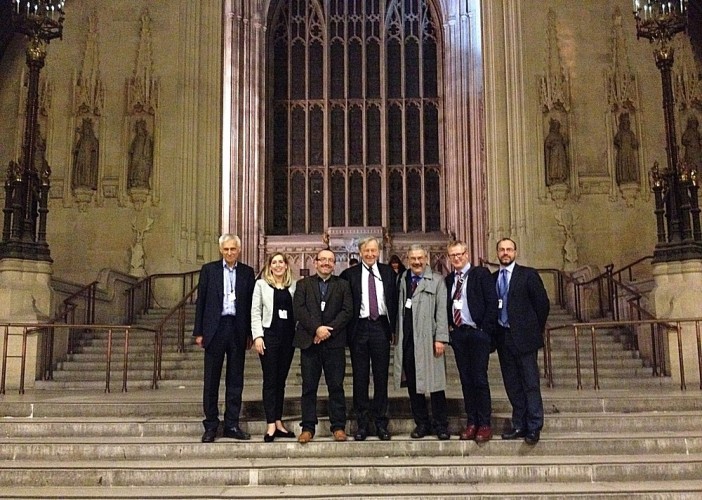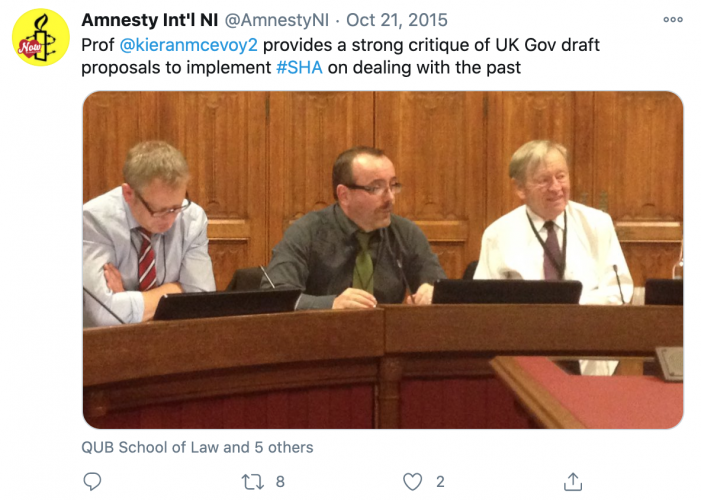






The Model Bill, together with an explanatory framework and an analysis of the process of ‘legislating the past “from below”‘, was formally launched in October 2015 at an event at the House of Lords. The event was sponsored by Lord Dubbs and addressed by Shadow Northern Ireland Secretary of State, Vernon Coker. It was also widely publicised through the local print and broadcast media, at a number of major conferences in Belfast, and a range of seminars and briefings aimed at civil society organisations and political parties.
The Model Bill team was established in 2014 in response to the Stormont House Agreement. It comprised: Professor Kieran McEvoy and Dr Anna Bryson (Queen’s University Belfast), Professor Louise Mallinder (Ulster University), Brian Gormally, Daniel Holder and Gemma McKeown (the Committee on the Administration of Justice). They were assisted by Jeremy Hill, a former Foreign and Commonwealth Office lawyer and advisor to the Consultative Group on the Past, and Daniel Greenberg, a senior barrister and experienced parliamentary draftsperson.
The agreed aims and objectives were to help ensure that:
The debate on dealing with the past in Northern Ireland is informed by technically sound but accessible legal and policy commentary in order to help people make their own assessments from as informed a position as possible.
Public discussions on legacy issues are informed by relevant international and comparative experiences, whilst seeking bespoke solutions appropriate to the local context.
The proposed legislation is fully compliant with the UK’s international obligations, particularly Articles 2 and 3 of the European Convention on Human Rights (ECHR ‘right to life’ and prohibition on torture).
The proposed legislation remains faithful to the SHA, including its guiding principles.
The proposed mechanisms are primed to deliver meaningful results for victims, survivors, and broader society harmed by the conflict.
The overall end result is significantly better than the existing piecemeal approach to dealing with the past.
In order to highlight the full range of issues arising, the team set about developing a Model Bill. This included detailed clauses and explanatory notes that would, if implemented, give effect to the SHA legacy mechanisms. Throughout 2015, developing drafts were discussed with victims and survivors, politicians from across the political spectrum, a wide range of local civil society and NGO organisations, and British and Irish officials. Once completed, the Model Bill was formally launched in October 2015 at an event at the House of Lords.
The event was sponsored by former Northern Ireland Office Minister Lord Dubs and addressed by the then Shadow Northern Ireland Secretary of State, Vernon Coaker.
Speakers included Kate Allen, Director of Amnesty International UK, and Alan McBride, co-ordinator of the Wave Trauma Centre.







